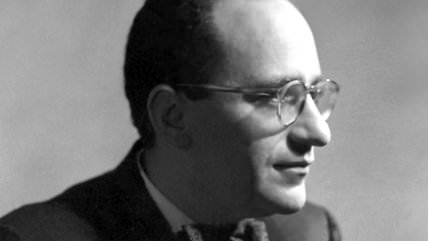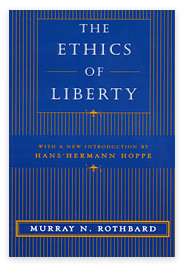Sheldon Richman on Rothbard's The Ethics of Liberty

(Mises Institute/Wikimedia Commons)

In 1982, Murray Rothbard published his magnum opus in political philosophy, The Ethics of Liberty. It's still a remarkable presentation of the moral case for political freedom, writes Sheldon Richman. The first striking feature of Ethics is that the opening five chapters seek to establish the validity of natural law, an approach to moral inquiry based on the distinctive nature, faculties, and tendencies of the human being. Rothbard wanted us to read about natural rights before moving on to such topics as property, enforceable rights, voluntary exchange, aggression, and self-defense. Why?
